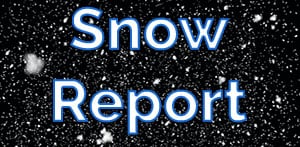Bishop Unified School District’s March Board of Directors’ meeting started out with public
comment focusing on sex education in middle school and the content of books available to
students. The Board agreed to add the topic to its May 18 meeting. Earlier this month, an
informal information session was held by a community group to bring locals up to speed on
both issues. The following is an abbreviated run-down of both.
First, sex ed: According to an Inyo County Board of Education staffer, nobody through grade 12
is “mentally, physically or emotionally ready for sex but young people need the skills to figure it
out pre-sex.” But, ready or not, it happens evidenced by the fact the largest age-range for
sexually transmitted diseases is 15-24.
According to the staffer at the informal gathering in mid-April, sex-ed messages to the younger
students focus on healthy relationships and “this is your body, nobody can tell you what to do
with it.” Conversations with fifth graders focus primarily on hygiene. Her observations: puberty
is starting earlier and middle-school age students already have a range of sexual knowledge. In
addition, if students express a discomfort with the material in books available to them, they are
told to simply not to read those specific books.
Comments at the Board’s March meeting came primarily from anti-sex education advocates,
ranging from a push for abstinence based messaging to an aversion to teaching subjects “kids
do not need to know.” The other side of the debate on both book content and sex-ed expressed
the view that “kids need to learn things outside their experience, things that challenge theirthoughts.” What was not taken into account was the possibility students share information
with no reference to where that information comes from.
Next, books: The first banned book in the United States was New English Canaan, published in
1637 by Thomas Morton. His tome compared Puritans in Quincy, Massachusetts to crustaceans. The Puritan communities banned Morton and his book.
Outrage over literary content is cyclical, in line with the political mores of the time. Anyone
listening to the national news today has to realize the country is as sharply divided, or more so,
as it has been since the 1960s with civil rights and the war in Vietnam. Recognized, and
awarded, writers like Toni Morrison, J.D. Salinger, Sherman Alexie and Khaled Hosseini all made the lists of banned books nationwide during the 2021-22 school year.
The books in question were all approved by the District’s Board of Directors by title with no
questions asked or further explanations of content required by the Directors. The books are
optional reading selected by the students.



















What books were banned?
What do when the drive to push such hot button topics on an unwilling population is the catalyst for violence at our schools? While I support social justice, perhaps gambling with our children’s lives isn’t the best place to start.
I see the need for educational basics such as hygiene and bodily autonomy. Certainly for the kids who’s parents aren’t active in these discussions with their kids at this age. A lot of this is really is starting to step on the job of the parents. Those of us who… Read more »
The left is consumed with sexualizing children and young people. The left ruins everything it touches!!! POP and MOM are in charge of these kids. Just because some feel “they are going to do it anyway” is NOT a reason for government schools to do what parents are supposed to… Read more »
and the thumbs down on your post is prove you are correct.
Amelia Celio
And sadly, the thumbs up he’s getting,shows there’s still quite a few trumpers out there, and FOX NEWS watchers,and believers of their continuous and habitual lies they’re being told and how to think and what to say …
Can anyone find what was actually discussed? It is SO HARD for me to form an opinion without knowing what we are talking about! I can’t find anything on the Board agenda that talks about either of sex ed curriculum or books!
Attend the BUSD board meeting Thursday, May 18th @ 6:30 at the Carl Lind room at Bishop High School. This Sex Ed curriculum is on the agenda.
Very “safe” reporting…. basically said nothing…